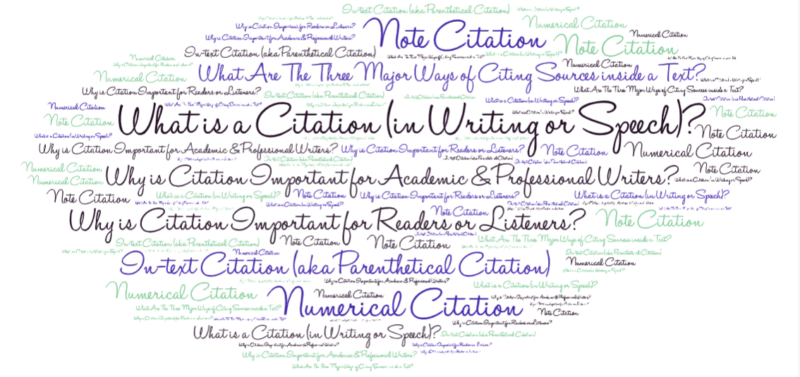Related Concepts: Critique; Revision
Dear Professor,
As a student, I have taken many writing courses. I enjoyed some more than others.
Three courses and professors stick out to me when I ask myself, “What is a writing professor meant to do?”
My sophomore high school year course was taught by Mrs. Ryan, a military veteran, which reflected in how she taught her class. She had a formulaic approach to assignments, was strict in grading, and stuck exclusively to a printed rubric.
My senior year writing course was led by, Mr. Thomas, who was known as the “chill” teacher. Students were given complete creative freedom in writing assignments – No explanation or examples, completely up to the students how to organize their papers. My first-year college writing course with Dr. Stevenson was one of my favorites. She balanced structure with some creative freedom and a focus on improvement.
I had the impression that I was going to have an easy class with Mr. Thomas. A class where you could write about absolutely anything and be done with it. Sounds like a dream, right? After submitting a few assignments in this manner my dream became a nightmare.
Imagine this: you are given the prompt, “Write an essay about criticizing society.”
Since you can write about anything, you decide to write about an issue that you are truly passionate about. You put all your knowledge, emotions, and maybe include some new research into this essay you have crafted. When completed, you submit it and… nothing. No comment on your topic, no comment on how you constructed the essay, no feedback. Wait, you get a grade! But what could that B+ mean? Was your point valid or not important enough? Did you include enough facts or statistics? A grade isn’t enough when it comes to understanding how you did on a paper, and it definitely isn’t enough when evaluating a student’s work. Each student is a unique individual that may use different approaches and even goals when writing, especially when the topic is completely up to them. A grade doesn’t explain how their approach was or wasn’t successful. The lack of feedback I received from Mr. Thomas was my reality for the rest of the semester, and I felt as if my writing didn’t matter past earning a grade in his course.
Mrs. Ryan’s class was taught through lists. I mechanically used these lists and rubrics in my corresponding writing assignments. Her class was no different to me than my algebra class. Add these 3 elements to this essay which equals an A. It was great to get a good grade, but I felt drained as I had to get it “right” every single time. If I didn’t clearly express three points in my “American Sniper Analysis Essay” then I would receive a lower grade. These were the criteria I followed but what did they mean? Why 3 points? What does it have to do with the effectiveness of my essay? I was given feedback, but the feedback was based on a guideline that I didn’t understand. Is this the only way to write?
Dr. Stevenson incorporated some structure, creative freedom, and feedback into her assignments which helped me to grow as a writer. For example, I was assigned to write an essay based on the topic of nostalgia. I was given creative freedom and got the chance to write about a topic that was personal to me. Examples were given in class of how other writers approached the topic and why they chose to write about it in the first place.
From Dr. Stevenson, I was also exposed to multiple writing techniques and introduced to the idea that there is not one way of writing. Contrary to Mrs. Ryan’s rules, learning about these concepts was a relief. Once I wrote my first draft, I was given feedback and the opportunity to revise my work to make it clearer and more impactful to the reader. Dr. Stevenson asked me to consider what I wanted the reader to learn from my essay which was at first, my reflections and experiences with nostalgia. I then transformed my essay into one about nostalgia’s ability to be harmful or positive depending on how you react to it. I was able to write about a personal topic and refine it to help the reader gain something from it. I felt like my voice was heard and mattered and was given support and encouragement to expand on the ideas of my paper.
Feedback has helped me to grow as a writer and will help many other students in writing courses. Both of my high school teachers had different teaching styles, but both styles had the potential to develop my writing. Mrs. Ryan’s formulaic class enabled me to expand on my tools for writing, but “tools” aren’t useful if you don’t know how to use them. Mrs. Ryan should have explained the tools to me by explaining why she chose a certain rubric to use and how it is effective, while also providing examples. If she had done this, my writing could have improved as a whole. I would have gained a true understanding of why certain conventions are incorporated into writing and known when to use them.
Mr. Thomas’s creative freedom was an exceptional aspect of the class, and it enabled me to write about topics I was passionate about. Without feedback, this aspect fell flat, but with feedback, the momentum I had could have continued. I might have understood what worked in my paper, refined my ideas, and expanded upon those ideas. Not only should feedback be given but also be directed and provided with an explanation.
Dr. Stevenson’s class and the nostalgia paper is an effective example of feedback incorporated in a way that helped me to grow as a writer. Assignments can either feel like the growth of ideas or something just to get over. Feedback allows students to understand what they can improve on and why that revision is considered an improvement in the first place. A writing professor’s job is to incorporate these to give students the ability to revise the work that they are truly passionate about to present it in the most effective way.






















